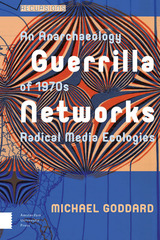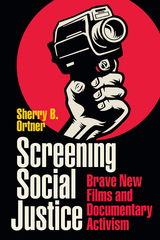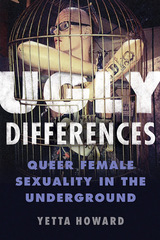3 books about Alternative mass media

Guerrilla Networks
An Anarchaeology of 1970s Radical Media Ecologies
Michael Goddard
Amsterdam University Press, 2018
The radical youth movements of the 1960s and '70s gave rise to both militant political groups ranging from urban guerrilla groups to autonomist counterculture, as well as radical media, including radio, music, film, video, and television. This book is concerned with both of those tendencies considered as bifurcations of radical media ecologies in the 1970s. While some of the forms of media creativity and invention mapped here, such as militant film and video, pirate radio and guerrilla television, fit within conventional definitions of media, others, such as urban guerrilla groups and autonomous movements, do not. Nevertheless what was at stake in all these ventures was the use of available means of expression in order to produce transformative effects, and they were all in different ways responding to ideas and practices of guerrilla struggle and specifically of guerrilla media. This book examines these radical media ecologies as guerrilla networks, emphasising the proximity and inseparability of radical media and political practices.
[more]

Screening Social Justice
Brave New Films and Documentary Activism
Sherry B. Ortner
Duke University Press, 2023
In Screening Social Justice, award-winning anthropologist Sherry B. Ortner presents an ethnographic study of Brave New Films, a nonprofit film production company that makes documentaries intended to mobilize progressive grassroots activism. Ortner positions the work of the company within a tradition of activist documentary filmmaking and within the larger field of “alternative media” that is committed to challenging the mainstream media and telling the truth about the world today. The company’s films cover a range of social justice issues, with particular focus on the hidden workings of capitalism, racism, and right-wing extremism. Beyond the films themselves, Brave New Films is also famous for its creative distribution strategies. All of the films are available for free on YouTube. Central to the intention of promoting political activism, the films circulate through networks of other activist and social justice organizations and are shown almost entirely in live screenings in which the power of the film is amplified. Ortner takes the reader inside both the production process and the screenings to show how a film can be made and used to mobilize action for a better world.
[more]

Ugly Differences
Queer Female Sexuality in the Underground
Yetta Howard
University of Illinois Press, 2018
What would it mean to turn to ugliness rather than turn away from it? Indeed, the idea of ugly often becomes synonymous with non-white, non-male, and non-heterosexual physicality and experience. That same pejorative migrates to become a label for practices within underground culture. In Ugly Differences, Yetta Howard uses underground contexts to theorize queer difference by locating ugliness at the intersection of the physical, experiential, and textual. From that nexus, Howard contends that ugliness—as a mode of pejorative identification—is fundamental to the cultural formations of queer female sexuality. Slava Tsukerman's postpunk film Liquid Sky, Sapphire's poetry, Roberta Gregory's Bitchy Butch comix, New Queer Cinema such as High Art—these and other non-canonical works contribute to an audacious critique. Howard reveals how the things we see, read as, or experience as ugly productively account for non-dominant sexual identities and creative practices. Ugly Differences offers eye-opening ways to approach queerness and its myriad underground representations.
[more]
READERS
Browse our collection.
PUBLISHERS
See BiblioVault's publisher services.
STUDENT SERVICES
Files for college accessibility offices.
UChicago Accessibility Resources
home | accessibility | search | about | contact us
BiblioVault ® 2001 - 2024
The University of Chicago Press









